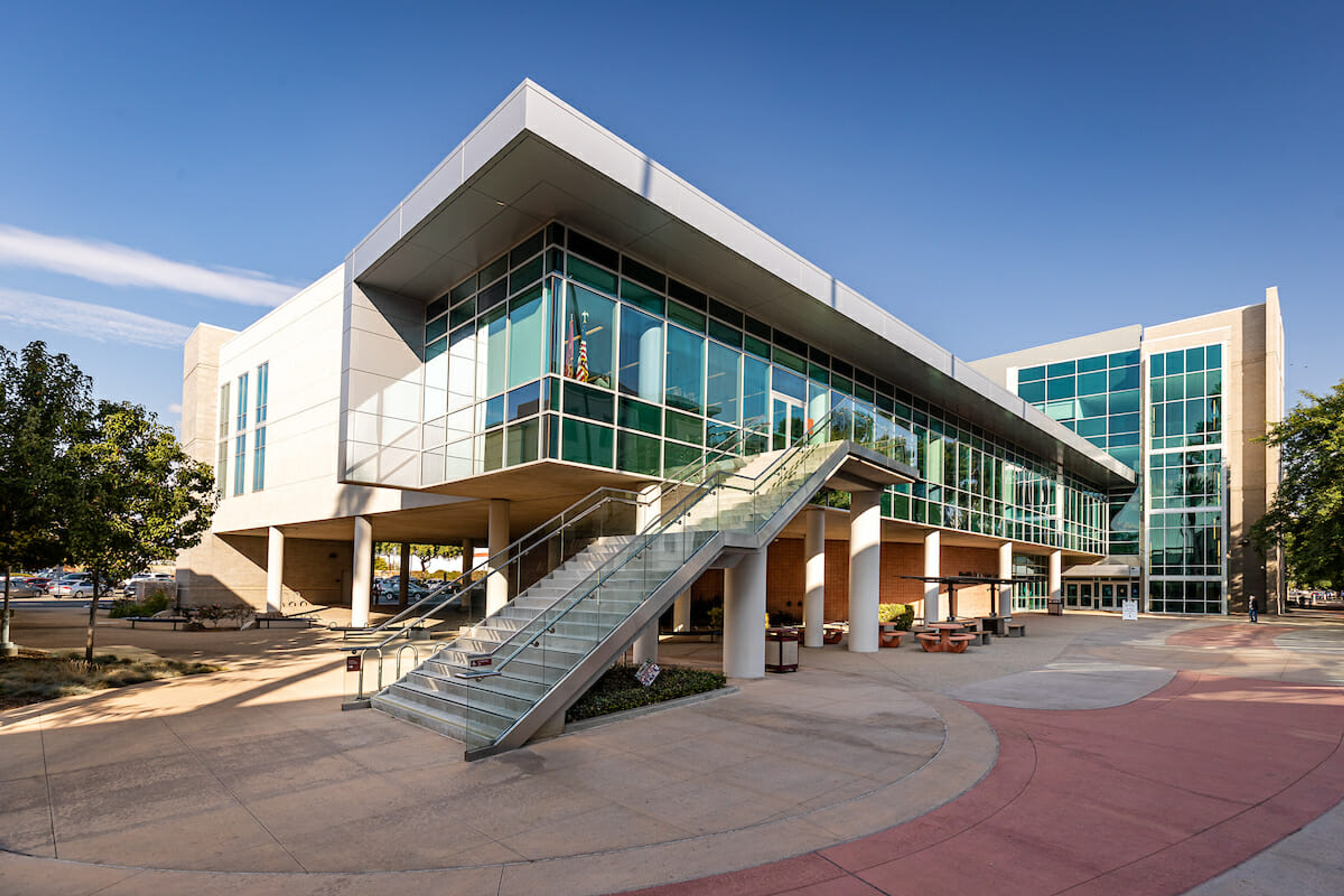Medical Schools in Oregon & How to Get In (2025)
Explore the top Oregon medical schools, including OHSU and COMP-Northwest. Compare programs, admissions data, and find your best-fit path to med school.
Posted July 21, 2025

Join a free event
Learn from top coaches and industry experts in live, interactive sessions you can join for free.
Table of Contents
Medical education in Oregon is limited to just two schools. Still, both offer strong academic programs, mission-driven training, and clear opportunities for students committed to improving healthcare in the state and beyond. Whether you’re pursuing an MD or DO degree, understanding what each program offers, how competitive they are, and how to stand out as an applicant can make all the difference.
This guide provides an in-depth look at the two medical schools in Oregon: Oregon Health & Science University (OHSU) and the College of Osteopathic Medicine of the Pacific Northwest (COMP-Northwest). It includes admissions data, curriculum highlights, tuition, and key strategies to help you prepare your strongest application.
What Is Medical Education?
Medical education includes the academic and clinical training required to become a fully licensed physician. It involves learning the sciences behind medicine, understanding the systems of the human body, gaining clinical skills through rotations, and developing professionalism and communication skills for patient care.
Medical Education Pathways
- Allopathic Medicine (MD): Offered at traditional medical schools like OHSU, this route focuses on evidence-based diagnosis and treatment.
- Osteopathic Medicine (DO): Offered at COMP-Northwest, this degree includes additional training in the musculoskeletal system and a more holistic patient care philosophy.
- Dual Degree Programs: Some schools, including OHSU, offer MD/MPH and MD/PhD options for students interested in research or public health careers.
Factors to Consider When Choosing a Medical School in Oregon
1. Degree Type and Medical Philosophy
OHSU offers an MD program rooted in allopathic medicine, while COMP-Northwest grants a DO degree focused on osteopathic principles. MD programs generally emphasize traditional scientific approaches to diagnosis and treatment. DO programs include additional training in osteopathic manipulative medicine and take a more holistic view of patient care. Both degrees lead to full medical licensure, but your interest in philosophy and training style may affect your preference.
2. Admissions Competitiveness
Both schools are selective, but admissions expectations differ slightly. OHSU’s average accepted MCAT score is around 509, while COMP-Northwest’s is approximately 507. GPA ranges are also similar, with most admitted students holding a GPA above 3.6. OHSU strongly favors in-state residents or applicants with Oregon ties, while COMP-Northwest also considers candidates from the broader Pacific Northwest.
3. Cost and Financial Aid
Tuition varies significantly between the two. OHSU charges different rates for in-state and out-of-state students, while COMP-Northwest charges the same for all students. OHSU is more affordable for Oregon residents, but COMP-Northwest may offer internal scholarships to offset the higher cost. Consider both tuition and total cost of attendance, including living expenses.
4. Curriculum and Clinical Training
OHSU uses a systems-based curriculum with early exposure to patient care and options for public health or research-focused tracks. Students train at a large academic health center in Portland. COMP-Northwest follows an integrated, discussion-based curriculum with strong community partnerships across multiple states. Clinical rotations are based in rural and regional hospitals, supporting training in underserved areas.
5. Mission Fit and Career Goals
If your goals include public health, biomedical research, or practicing in an academic hospital setting, OHSU may be a better fit. If you’re interested in primary care, rural medicine, and working closely with underserved populations, COMP-Northwest may offer better alignment. Review each school’s mission statement and consider how your experience and interests connect to their priorities.
6. Location and Support Network
Living and training in Portland vs. Lebanon may impact your quality of life, access to support systems and professional networking. Portland offers a large urban setting with more hospital systems, while Lebanon provides a quieter, community-based training environment. Portland, Oregon, health education opportunities are abundant, with institutions like OHSU playing a significant role in shaping healthcare in the region.
7. Secondary Essays and Application Requirements
Both schools require multiple secondary essays and the CASPer test. Plan for these components, especially if you’re applying to both schools, to manage deadlines and submit strong materials.
Overview of Medical Schools in Oregon
Oregon has two accredited medical schools that serve as the primary training grounds for future physicians in the state. While they share a commitment to medical education and improving access to care, each school has its own structure, philosophy, and admissions approach. OHSU, Oregon’s only MD-granting school, is a public institution founded in 1887. It’s known for its leadership in rural medicine, family medicine, and public health, with options for dual degrees like MD/MPH and MD/PhD. Students train at a large academic medical center with major research and clinical facilities. COMP-Northwest, a private DO-granting program and part of the Western University of Health Sciences opened in 2011. Its curriculum emphasizes osteopathic principles, holistic care, and hands-on training. Clinical rotations span Oregon and other Pacific Northwest states, with a focus on community-based practice.
List of Medical Schools in Oregon
| Medical School | Location | Degree | Type | Year Founded | Acceptance Rate |
|---|---|---|---|---|---|
| OHSU School of Medicine | Portland | MD | Public | 1887 | 9% |
| COMP-Northwest | Lebanon | DO | Private | 2011 (OR campus) | 9.8% |
1. Oregon Health & Science University (OHSU) School of Medicine
- Applications: 6,000+ (most recent cycle)
- Interviews Offered: 543
- Class Size: ~150
- Acceptance Rate: ~9%
- Average GPA: 3.66 (overall), 3.57 (science)
- Average MCAT: 509
- Female Students: 59%
- Male Students: 40%
- Average Age: 27
- NIH Research Funding: ~$596.9 million (institution-wide, FY23)
- Total Faculty: 3,487 (School of Medicine, FY23)
Visit the OHSU School of Medicine Admissions

Example Courses & Training Highlights:
- YOUR.MD Curriculum – an adaptive curriculum emphasizing early clinical experience, interdisciplinary collaboration, and leadership
- MD/PhD and MD/MPH Dual Degrees – nationally competitive, fully funded physician-scientist track and public health integration
- Clinical Training Across Oregon – a strong focus on rural medicine, with partnerships across urban and underserved regions
- Oregon Clinical & Translational Research Institute – NIH-funded infrastructure offering hands-on translational research training
- Equity and Inclusion Programs – robust DEI commitment with 22% URG enrollment and increasing non-resident participation
- Stable Tuition Promise – fixed tuition model across all four years of MD training
Oregon Health & Science University (OHSU) School of Medicine is the state’s only public academic health center and a nationally ranked leader in rural medicine, primary care, and public health education. Based in Portland, OHSU offers an immersive medical education that blends rigorous clinical training with extensive research opportunities. The school serves as a major driver of healthcare access across the state, particularly in medically underserved areas. It's YOUR.MD curriculum equips students to adapt to rapidly evolving care environments, and its MD/PhD program attracts top physician-scientist talent from across the country. With a strong mission to serve Oregon communities, OHSU continues to graduate physicians who lead, innovate, and advocate for equity in healthcare.

2. College of Osteopathic Medicine of the Pacific Northwest (COMP-Northwest)
- Applications (Class of 2024): 3,753
- Interviews Offered: 369
- Class Size: 107
- Acceptance Rate: ~9.8%
- Average GPA: 3.66 (overall), 3.61 (science), 3.72 (non-science)
- Average MCAT: 508
- Female Students: 54%
- Male Students: 46%
- Underrepresented Minorities: 17%
- In-State Students (Oregon): 38%
- Average Age: 26
- Graduate Degree Holders: 15%
- 100% Residency Match Rate (Class of 2024)
- Campus Location: Lebanon, Oregon
Visit the COMP-Northwest Class Stats
Example Courses & Training Highlights:
- DO/MPH Dual Degree Option – Integrated public health track for future physician-leaders
- Humanism-Focused Curriculum – Rooted in compassion, cultural sensitivity, and patient-centered care
- Longitudinal Tracks & Digital Doctor Bag – Innovative experiential learning and digital medical toolkit
- Sarkaria Family Patient Simulation Suite – 6,000 sq. ft. high-tech clinical simulation center
- Community-Driven Clinical Rotations – Rural and underserved area placements across the Pacific Northwest
- Tier 1 for Primary Care – Named by U.S. News & World Report as a top primary care medical school (2024)
COMP-Northwest is Western University of Health Sciences’ Oregon-based osteopathic medical campus. As the only osteopathic medical school in the state, COMP-Northwest is deeply committed to producing compassionate, well-trained physicians ready to serve in diverse and underserved communities. The school’s curriculum emphasizes humanism, clinical readiness, and wellness from day one, and graduates consistently match into competitive residencies across the country. With top-tier simulation facilities and a mission-driven culture, COMP-Northwest is shaping the next generation of DOs who lead with skill, empathy, and purpose.
Oregon Medical School Admissions Strategy
1. Align With Each School’s Mission
OHSU values applicants with a demonstrated interest in improving health for Oregonians and strong community service backgrounds. COMP-Northwest emphasizes culturally sensitive and compassionate care, especially in underserved areas. Tailor your essays and experiences to show fit.
2. Understand the Interview Format
- OHSU: Uses MMI (multiple mini-interviews)
- COMP-Northwest: Traditional one-on-one format
3. Prepare a Balanced Application
Successful applicants to both programs have strong:
- GPA and MCAT scores
- Letters of recommendation from science faculty and healthcare providers
- Clinical and volunteer experiences
- Commitment to service and patient care
4. Know Your Timeline
- AMCAS and AACOMAS open in early May
- OHSU secondary deadline: ~early November
- COMP-Northwest secondary deadline: ~February
- CASPer test required by both schools
5 Expert Tips for Oregon Med School Applicants
1. Leverage the Oregon Rural Scholars Program at OHSU to Strengthen Your Application
OHSU’s Rural Scholars Program is a targeted initiative to train physicians committed to underserved communities in Oregon. Applicants with rural backgrounds or experience in community health have a strategic advantage if they position themselves accordingly. In your secondary application, emphasize rural clinical experiences, service in underserved settings, or long-term goals in Oregon's rural regions. Proactively reaching out to the program before applying shows initiative and signals genuine alignment with OHSU’s mission-driven approach.
2. Customize Your COMP-Northwest Application Based on Regional and Demographic Priorities
COMP-Northwest (Lebanon, OR) looks beyond metrics to evaluate fit. While the academic bar remains high, admissions decisions weigh heavily on non-academic attributes like maturity, service, and regional interest. If you have ties to the Pacific Northwest, highlight them. For non-traditional applicants or those with advanced degrees (which account for 15% of matriculants), frame your journey in terms of resilience and purpose. The secondary should reflect a clear understanding of COMP-NW’s humanistic values and a sincere desire to serve in a community-based model.
3. Strategically Plan Your Match by Researching Oregon-Based Residency Options
The state’s limited in-state residency capacity means placement strategies differ across schools. OHSU students tend to stay in-state, especially in primary care and internal medicine. COMP-NW students match nationally but often gravitate toward community-based and rural-focused programs. Tailor your application by identifying how the school’s partnerships align with your intended specialty and geographic preferences. Articulating those goals in your interview demonstrates forethought and program compatibility.
4. Send an Early, Data-Driven Letter of Intent to Stand Out Before Interview Season
Letters of Intent are common, but their timing is critical. Sending a well-crafted letter in late October, before peak interview volume, can subtly influence admissions decisions. Reference any new experiences (e.g., clinical work, research, leadership roles) and connect them directly to the school’s mission and curriculum. For COMP-NW, mention specific educational initiatives like the Digital Doctor Bag or longitudinal tracks. For OHSU, emphasize your understanding of their research ecosystem, patient population, or commitment to health equity.
5. Use Campus Tours and Info Sessions as Strategic Differentiators in Your Application
Both schools track attendance at info sessions, advising calls, and campus visits. These are more than outreach tools—they signal commitment. Attend a virtual or in-person session, then reference specific details (e.g., the faculty member you spoke with, simulation center features, or curriculum innovations) in your secondary. A follow-up thank-you or thoughtful question to admissions after an event not only builds rapport but can subtly boost your applicant profile in a competitive review cycle.
The Bottom Line
Oregon may have only two medical schools, but both offer distinct, mission-driven pathways to becoming a physician—whether you’re drawn to OHSU’s academic research environment and strong public health infrastructure or COMP-Northwest’s hands-on, community-oriented approach to osteopathic medicine. Success in applying to either program hinges not only on academic metrics but also on your ability to demonstrate regional ties, service commitment, and alignment with each school's core values. If you’re serious about practicing in underserved communities, advancing rural medicine, or shaping the future of healthcare in the Pacific Northwest, these schools can launch you toward a meaningful, impactful career. Thoughtful preparation, early engagement, and mission-matched storytelling are key to standing out in this highly competitive but rewarding application landscape.
Get Help From a Medical School Coach
Working with an expert coach can improve your chances of getting accepted. Leland’s med school admissions coaches can help you build your school list, edit secondary essays, and prepare for interviews.
Related Articles
- MD Application Deadlines of the Top 50 Medical Schools
- Medical School Cost Breakdown: How Much Does It Actually Cost?
- Medical School Requirements: What You Need to Get In
- Medical School Application Timeline: The Ultimate Guide
FAQs About Medical Schools in Oregon
How many medical schools are there in Oregon?
- There are two accredited medical schools in Oregon: Oregon Health & Science University (OHSU) in Portland and the College of Osteopathic Medicine of the Pacific Northwest (COMP-Northwest) in Lebanon. OHSU is a public, MD-granting institution, while COMP-Northwest is a private DO-granting school affiliated with Western University of Health Sciences.
What is the best college for medicine in Oregon?
- OHSU School of Medicine is widely considered the top medical school in Oregon. It’s nationally ranked for primary care, family medicine, and rural health, and serves as Oregon’s only public academic health center. OHSU is also known for its research output, NIH funding, and strong residency match outcomes. However, COMP-Northwest is a highly regarded option for students seeking a holistic, osteopathic medical education with a strong emphasis on serving rural and underserved communities.
What is the minimum MCAT score for medical school in Oregon?
- While there is no fixed “minimum” MCAT score, competitive applicants typically score in the 507–509 range. According to recent data; OHSU’s entering class averages around 509. COMP-Northwest averages around 507, though they evaluate candidates holistically and consider additional factors like service experience, mission alignment, and life circumstances.
What GPA do you need to get into UW medical school?
- Although the University of Washington School of Medicine (UW) is based in Seattle, it serves applicants from Oregon through the WWAMI regional program. Successful applicants to UW Medicine typically have; An average GPA of 3.7 or higher. A science GPA that is similarly strong. Competitive applicants also have extensive clinical experience, strong ties to the Pacific Northwest, and a clear commitment to serving underserved populations.
Browse hundreds of expert coaches
Leland coaches have helped thousands of people achieve their goals. A dedicated mentor can make all the difference.




















